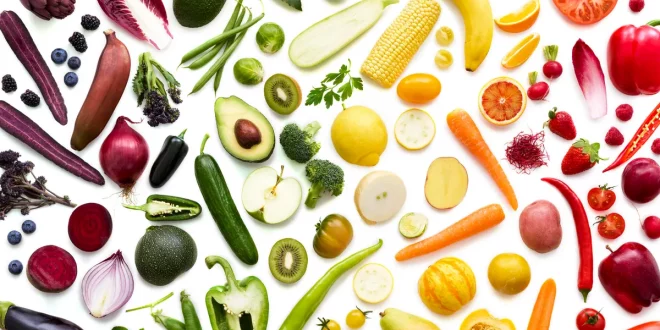Essential Minerals in Food
Essential Minerals in Food play a crucial role in maintaining our general health and well-being. These vital nutrients are required for a variety of bodily functions, ranging from building strong bones and teeth to supporting proper muscle and nerve function. In this article, we’ll explore the importance of essential minerals in our diet and highlight some nutrient-dense foods that can help us meet our mineral needs.
Understanding the essential minerals
Essential minerals are inorganic substances that our bodies require in small amounts for optimal function. They cannot be synthesized by the body, so it is vital to obtain them through our diet. These minerals are involved in a wide range of physiological processes, including energy production, hormone regulation, enzyme activity, and maintenance of fluid and electrolyte balance.
Calcium: Building Strong Bones and Teeth
An essential mineral that often comes to mind is calcium. Calcium is known for its role in building and maintaining strong bones and teeth. It also plays a vital role in muscle contraction, blood clotting, and nerve function. Dairy products like milk, yogurt, and cheese are excellent sources of calcium. Leafy green vegetables like kale and broccoli, fortified plant-based milk, and fortified cereals are also good choices.
Iron: oxygen transport and energy production
Iron is another essential mineral that is crucial to our health. It is involved in the transport of oxygen, the production of energy, and the formation of red blood cells. Iron-rich foods include red meat, poultry, shellfish, legumes such as lentils and beans, fortified cereals, and leafy green vegetables. Ensuring adequate iron intake is particularly important, especially for women of childbearing age who are at higher risk of iron deficiency.
Magnesium: supporting muscle and nerve function
Magnesium is essential for maintaining healthy muscle and nerve function, as well as contributing to energy production and bone health. Good dietary sources of magnesium include nuts (such as almonds and cashews), seeds (such as pumpkin and sunflower seeds), whole grains, legumes, leafy green vegetables, and even dark chocolate.
Potassium: Balance fluids and support heart health
Potassium is a mineral that plays a crucial role in balancing fluids within our bodies and supporting proper nerve and muscle function. It is also essential for maintaining heart health. Bananas, citrus fruits, potatoes, tomatoes, green leafy vegetables, and beans are excellent sources of potassium.
Selenium: antioxidant support and immune function
Selenium is an important mineral that acts as an antioxidant, protecting our cells from damage caused by free radicals. It also supports immune function and helps with thyroid hormone synthesis. Seafood, meat, poultry, nuts (such as Brazil nuts), seeds, and whole grains are good dietary sources of selenium.
Conclusion
Essential minerals are essential for our overall health and well-being. Incorporating a wide range of nutrient-dense foods into our diets helps ensure adequate intake of these essential minerals. Calcium, iron, magnesium, potassium, selenium, and many other minerals are found in abundance in various food sources. By prioritizing a balanced diet and including a variety of fruits, vegetables, whole grains, lean protein, and dairy, we can nourish our bodies with the essential minerals it needs to thrive.
Remember, it is always recommended to consult with a health professional or registered dietitian to assess your individual mineral needs and develop a personalized dietary plan. So, let’s make conscious decisions to include these essential minerals in our daily meals, setting out on a path to optimal health and vitality.
 The Care Up
The Care Up




